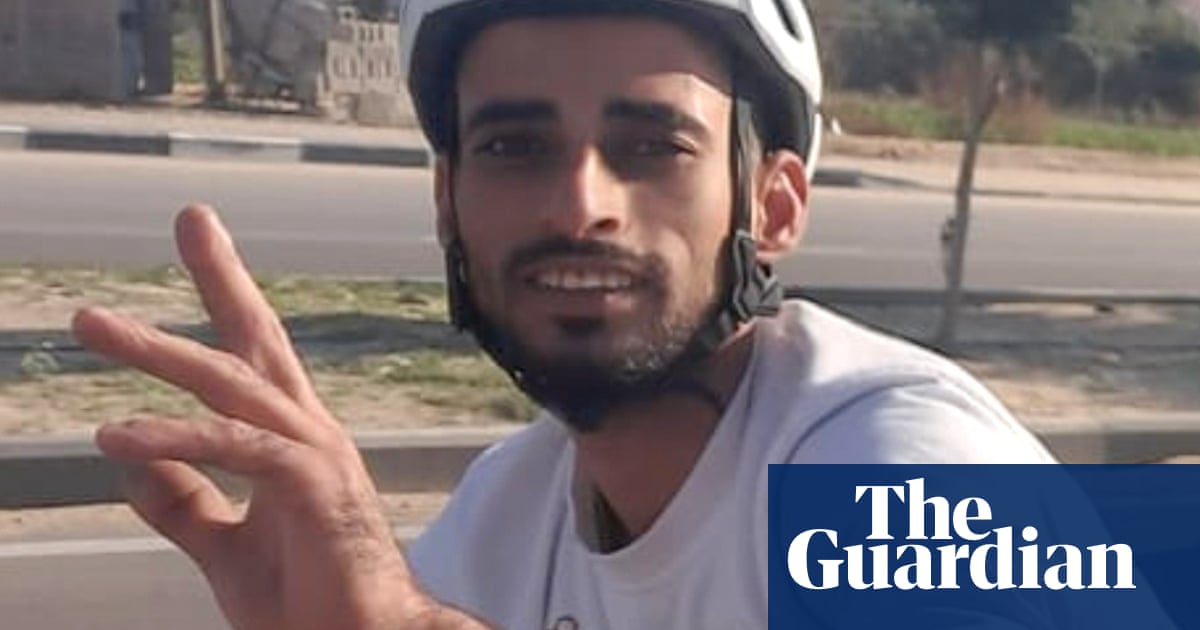A Palestinian cyclist who lost his leg in an Israeli airstrike more than a decade ago was killed by another missile attack this week, after spending his life trying to defy his disability.
Ahmed al-Dali, 33, was a member ofthe Gaza Sunbirds, a paracycling team formed in 2020. He was also a keen para-footballer.
“Ahmed’s death is really saddening. We don’t want him to be just another number. His whole life, trying to compete, trying to get into sports, was because he didn’t want to be another number, another one who lost his leg. Now we have to continue in his honour,” said Karim Ali, co-founder of theGazaSunbirds.
Ali said Dali had suffered more than most since the Israeli airstrike in 2014 in which he lost a leg. He was declared dead after the strike and placed in a morgue before anyone realised he was still alive.
He had to juggle his love for sport with the reality of providing a living for his wife and four children. He did not receive disability benefit from the government but earned a meagre living as a bike mechanic before the war. During the Israeli assault on Gaza afterthe attack by Hamas on 7 October 2023he was displaced from his home and had to rely on the help of others.
He was killed on Monday in an attack on the city of Khan Younis, which Israel has ordered Palestinians to leave amid an intensified offensive over recent days that killed 85 Palestinians on Tuesday. Palestinian media reported up to 30 airstrikes in Khan Younis on the morning Dali was killed.
Israel has vowed to press on with its offensive and take complete control of Gaza, despite criticism this week from allies, with the UK saying it would suspend trade negotiations with Israel.
Ali said Dali’s troubles before his death were typical of many in the Gaza Sunbirds community.
“Their lives for almost two years now have been an unimaginable hell. The majority of the team cannot find food, they are sick with skin diseases, with rashes, there’s no medicine for them or their family. Their prosthetics are damaged and cannot be serviced.”
He added: “Ahmed loved cycling, he always loved cycling, he always had the best intentions but life put pressure on him as a person.”
Flavia Cappellini, an Italian film-maker who spent time with Dali while making a documentary about the cycling team, described him as “somehow shy and exuberant at the same time”.
She said Dali was committed to his family but sometimes struggled with the challenges he faced as a disabled man in Gaza trying to find employment.
“How do you work in a place that doesn’t provide chances to people with disabilities? That tormented hm, especially in regards to his sports endeavours. That reality hit him so hard,” she said. “He would cycle with his jeans on as he didn’t have any other clothes but that didn’t prevent him from experiencing freedom while on a bike.
“You could feel he was doing his best to come back from his injury trauma when he lost his leg in 2014. He wanted to succeed in sport as in life, but all the odds were against him.”
Over the past 16 months, the Sunbirds have distributed $450,000 (£336,000) worth of aid across the Gaza Strip.
